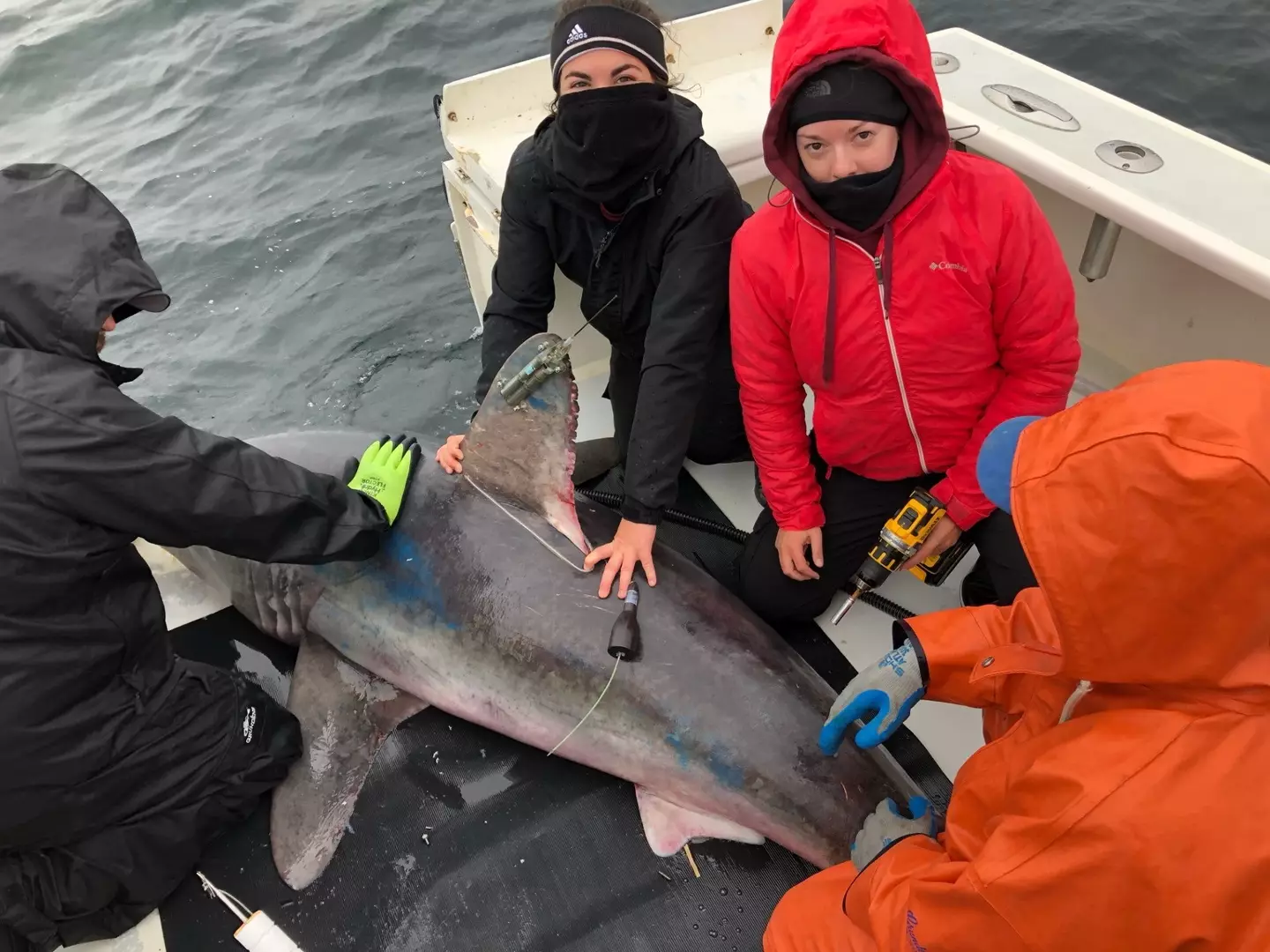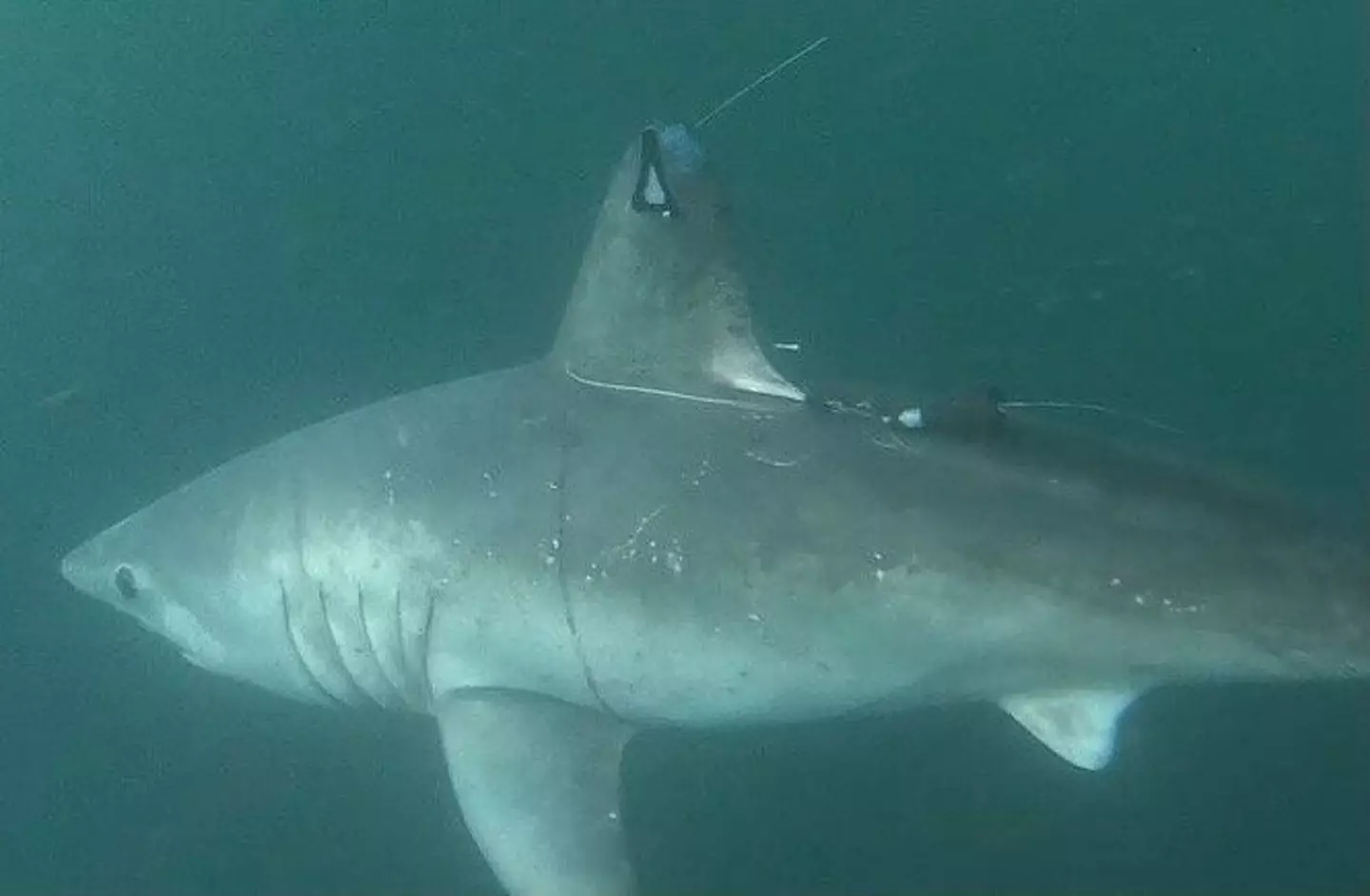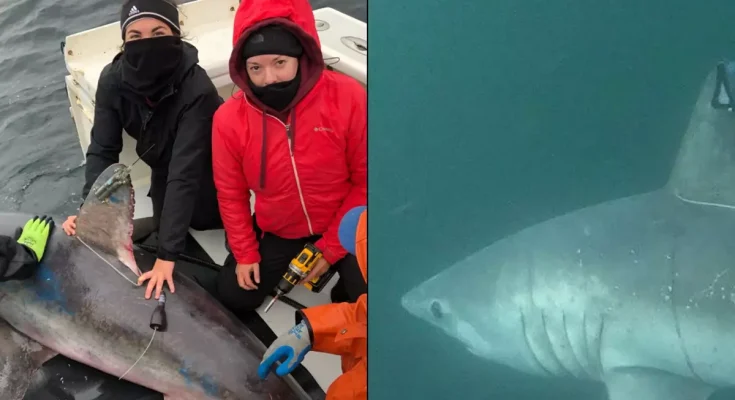Could the apex predator be turning cannibal?
Scientists have made a worrying discovery about Great White sharks, which suggests they could be turning to cannibalism and attacking their own species.
As an apex predator, Great white sharks have long been seen as one of the biggest predators in the ocean, hunting both humans and other marine life alike. However, new research suggests they are not against targeting shark breeds.
Marine scientists came to the conclusion after a pregnant female porbeagle shark was recovered in the Bermuda triangle, which injuries that were consistent with that of a shark attack.

The discovery has since been deemed a significant one, with Dr Brooke Anderson, of Arizona State University saying the killing is the first of its kind.
“This is the first documented predation event of a porbeagle shark anywhere in the world,” she said in the journal Frontiers in Marine Science.
However, the killing is more devastating than evidence of savagery on behalf of the Great whites, as Porbeagle sharks are classified as an endangered species.
Explaining the significance of the finding, she continued: “In one event, the population not only lost a reproductive female that could contribute to population growth, but it also lost all her developing babies.”
On average, Porbeagle sharks don’t reproduce until around 13 years of age, giving birth to an average of four pups every one to two years. With a reproductive cycle at this speed, Porbeagles cannot replenish their population if targeted by predators as well as recreational fishing, bycatch and habitat loss.
“If predation is more widespread than previously thought, there could be major impacts for the porbeagle shark population that is already suffering due to historic overfishing,” she added.

(SWNS)
In order to understand their migration patterns further, Anderson and her team captured Porbeagles and fitted them with satellite tags, which track their location, before being re-released.
Among the tagged sharks was a pregnant Porbeagle. Whose the data suggested she had been attacked and eaten by a large predator, with the tracker later floating to the surface of the ocean.
“The predation of one of our pregnant porbeagles was an unexpected discovery,” Dr Anderson said, adding that the shark was either killed by a Great white or a Shortfin mako shark.
“We need to continue studying predator interactions, to estimate how often large sharks hunt each other,” she added.
“This will help us uncover what cascading impacts these interactions could have on the ecosystem.”



